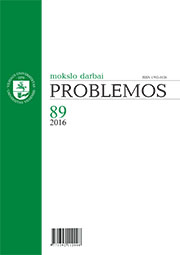
CARLAS SCHMITTAS IR POLITINIS ROMANTIZMAS: NAUJAS LIETUVOS POLITINĖS FILOSOFIJOS TYRINĖJIMŲ PUSLAPIS
Chronicles C. Schmitt and Political Romanticism: a New Page in Lithuanian Enquiries of Political Philosophy
More...We kindly inform you that, as long as the subject affiliation of our 300.000+ articles is in progress, you might get unsufficient or no results on your third level or second level search. In this case, please broaden your search criteria.

Chronicles C. Schmitt and Political Romanticism: a New Page in Lithuanian Enquiries of Political Philosophy
More...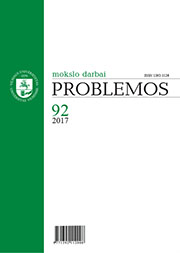
This article analyses the conceptions of individual rights presented in contemporary theories of legal positivism. Two dominant positivist conceptions of legal rights are distinguished: will theories and interest theories. The author seeks to prove that the separation thesis and other crucial premises of legal positivism lead to the conclusion that the concept of individual rights in theories of legal positivism is unnecessary and redundant. Because of this reason both will and interest theories in order to justify a certain conception of individual rights either are inevitably confronted with contradictions, or deviate from the core premises of legal positivism. In addition, the author aims to prove that active debate between will and interest theories is caused by priorities given to different conceptions of wellbeing. This means that, in the aspect of individual rights, legal positivism cannot isolate itself from content-based evaluations.
More...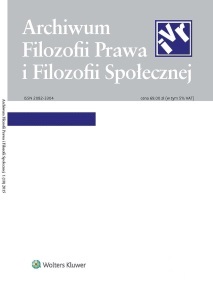
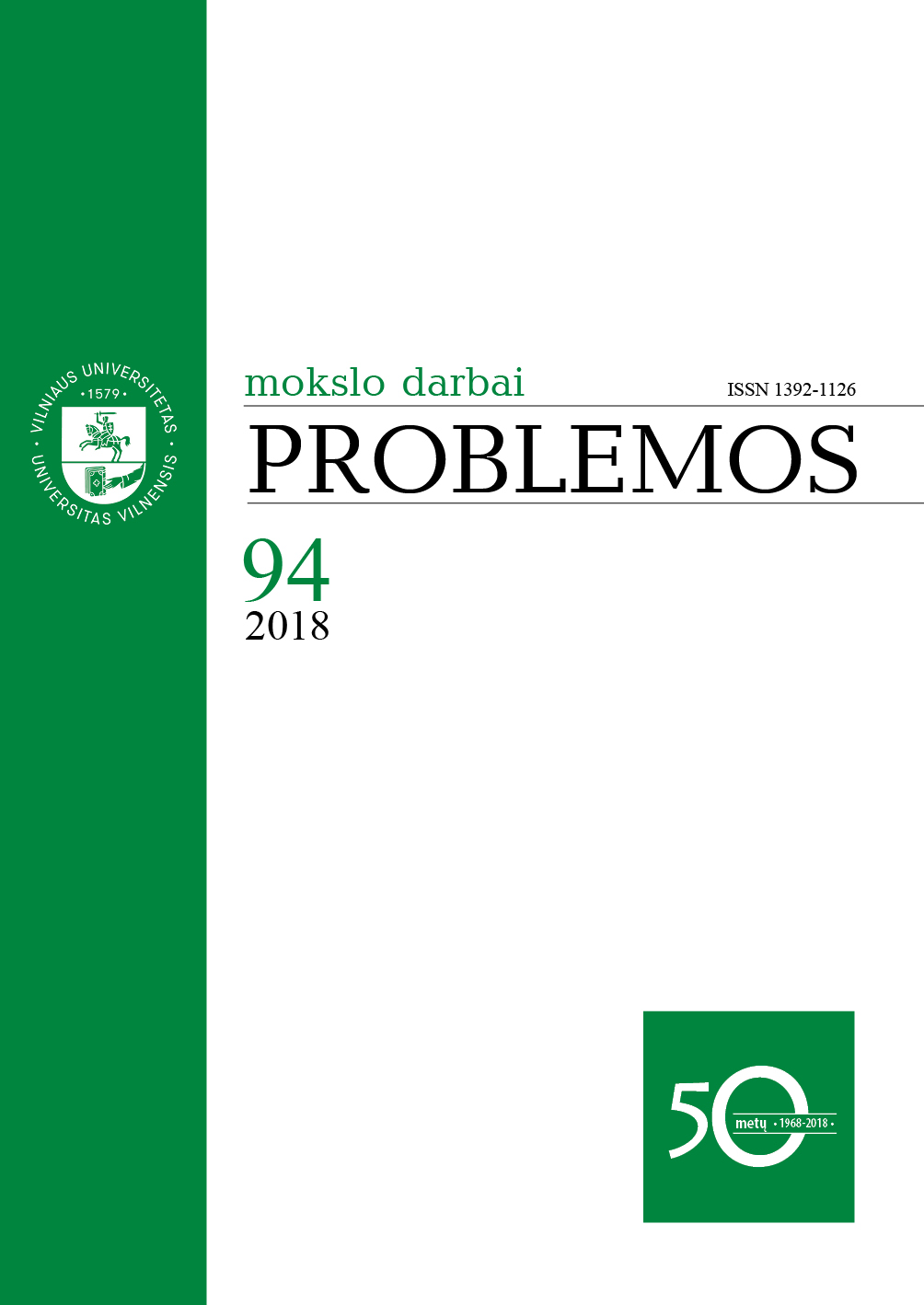
Armstrong’s theory of laws and causation may be articulated as something like the following, which we may refer to as the received view: “Laws are intrinsic higher-order relations of ensuring (necessitation) between properties. The instantiation of laws is identical with singular causation. This identity is a posteriori.” Opponents and advocates of this view, believe that it may fairly and correctly be attributed to Armstrong. I do not deny it; instead I seek to reconsider the received view, specifically by treating it as a part of Armstrong’s metaphysics. The main features that should concern us are truthmaker theory and the formal account of the constitutive parts of states of affairs. I also discuss Bird’s ultimate argument against Armstrong and show how its impact is weakened by this proper reading.
More...
The academic character of the article is connected with the attempt to answer the question asked in the title: Utopia without the law – is it possible? The theoretical arguments provided by the author lead to an affirmative answer to this question and allow for formulating the following thesis: there is no utopia without the law. The law is not only present in utopias, both positive and negative ones (anti-utopias and dystopias) but also, to a great extent, determines their existence and functioning. As a result, it links utopian thinking to reality. Any answer to this question is possible and justifiable in the academic discourse. According to the author of this article not only the law is present in the utopia but the law in the utopia must exist. The essence of the law in utopias is justice, but there is not justice in utopias without wisdom. The Bible, Roman law and philosophical and legal reflection were the sources of an approach to law for the creators of utopia. Referring to the views of such thinkers as: Plato, Immanuel Kant, Rudolf von Ihering, Gustav Radbruch, Karl R. Popper, Bronisław Baczko, the author states that the law is an integral part of both worlds: the utopian world and real world. So, there is not utopia without the law as an idea of jusctice, implemented into the social life of the people who are intelligent beings.
More...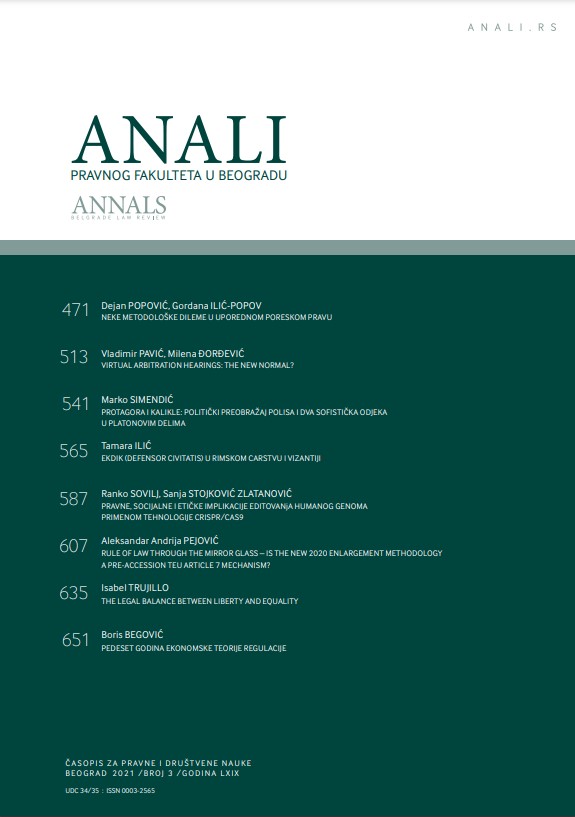
By comparing Protagoras’ and Callicles’ arguments, the author outlines two accounts that respond to the questions raised by the changing social realities of 5th century BC Athens. The two sophists’ views are comprised of several complementary elements: 1) viewing humans as beings driven by pursuit of pleasures and avoidance of pain; 2) distinguishing law from nature; 3) views of morality as grounded in nature; 4) demanding that laws be adjusted to natural standards of justice and good life. A key point of disagreement can be found in Protagoras’ myth, where he distinguishes between natural principles that apply only to humans and those that pertain to the rest of the natural world. This draws an important distinction between Protagoras and Callicles: Protagoras’ democratic man seeking to influence the outcomes of collective political decision-making in an egalitarian community is contrasted by Callicles’ aristocrat who is meant to freely govern over their inferiors.
More...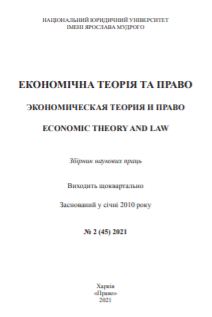
The article addresses loss of a chance doctrine in English law. Under this doctrine, the loss of a chance for a better result (or a chance to avoid a worse result) is in itself considered as a distinct type of compensable damage, which allows plaintiffs to obtain compensation in cases where it is impossible to prove that in the absence of the defendant’s wrongdoing harmful result would not have occurred, provided that the defendant’s wrongdoing increased the harmful result. The article first examines in which categories of cases English law considers the doctrine to be applicable and in which it does not, and then analyses proffered in academic literature ways to justify the differentiated approach.
More...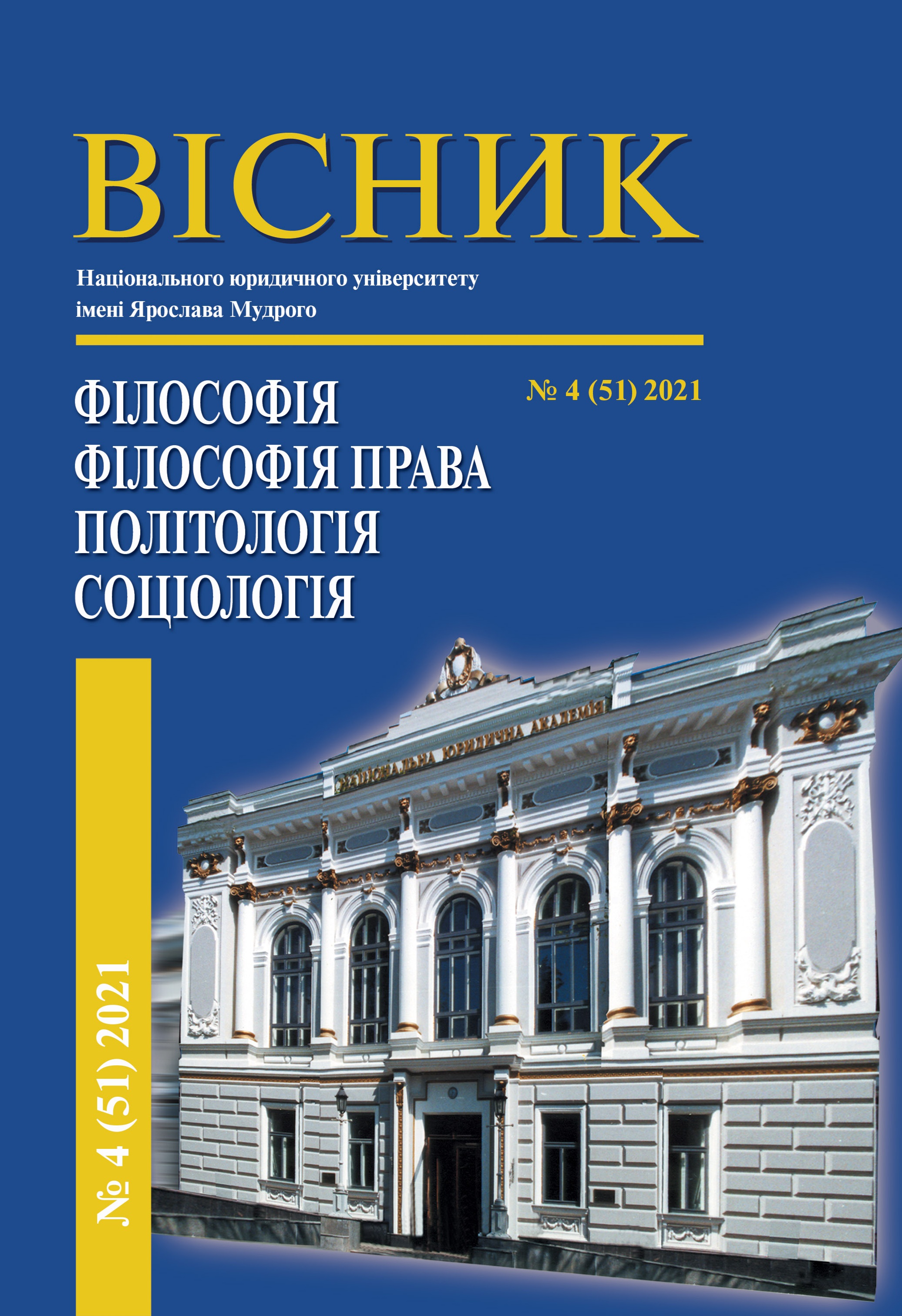
The views of thinkers and figures representing the direction of natural law, whose ideas had the greatest influence on the world philosophical and legal thought and the formation of the philosophical and legal views of judges, are considered. The interaction between the direction of natural law and the formation of judicial philosophy is shown. The role and importance of natural law for the development of philosophy of justice, which should be in constant contact with current events and problems, which would ensure its leading role in the development of legal theory and practice, through the impact on modern legal thought in Ukraine conditions of modern society.
More...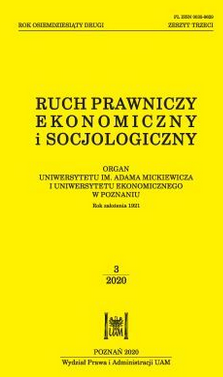
Review of: Paweł Boike - Prawo i literatura. Parerga, red. Joanna Kamień, Jerzy Zajadło, Kamil Zeidler, Gdańsk: Wydawnictwo Uniwersytetu Gdańskiego, 2019, ss. 434.
More...
The article deals with the problem of monological social relations as related to the conception of law that does not meet the communication criterion. The analysis is based on the dialogical concept of law and, correspondingly, on Arendt’s notion of the Athenian polis, Gadamer’s hermeneutics, Habermas’s theory of communicative action, Honneth’s theory of recognition, Foucault’s critique of monological society, and Fuller’s morality of law. The most important thesis is that the ethical condition of law fulfilling the communicative function is the recognition of the dialogical subjectivity of a human being and its participation in the constitution of law.
More...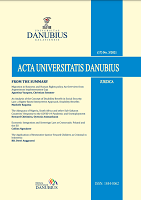
The issue of the connection between law and morality has been a constant concern of philosophers and jurists. The theories that develop this theme vary from a direction in which law is identified with morality, to the point where the law is being denied any influence of the morality. Although we observe that there are similarities and differences between law and morality, still the legal norms that govern the human activity in the society and that can be imposed at a given time by the public force makes the object of the legal science that has very close relations with the morality.
More...
This elaboration, belonging to the field of legal phenomenology, deals with the question of the quality of law; the issues which are naturally, inextricably linked with each contemporary legal system. The study makes certain proposals according to which the quality of law does not belong to the sphere of normative technique nor is it identified with the mere observance of the legislative regulations. Rather, it concerns the field of research; something that is inseparably linked with the concept of the theory of law and its necessary development. The Author distances himself from the traditional ways of dealing with the present topic, proceeding rather towards new methodological and doctrinal horizons.
More...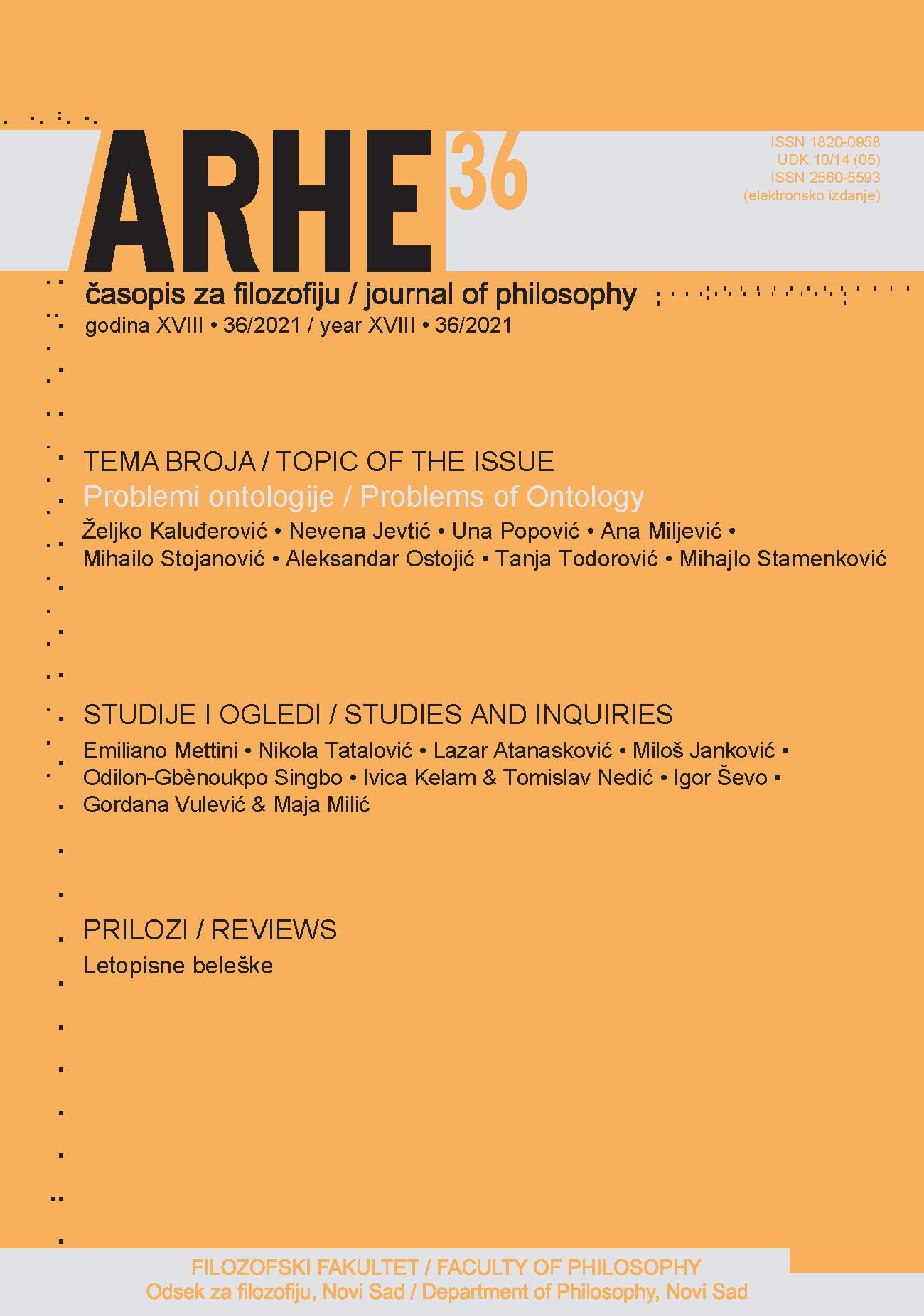
The development of new technologies has always found its first application in warfare, from the invention of the bow and arrow, through the discovery of gunpowder, to the use of unmanned aerial vehicles in the “War on Terror.” The “successful” use of drones in the targeted killings of “terrorists” gave additional impetus to the development of new types of autonomous weapons that completely replace soldiers of blood and flesh on the battlefield. Currently, there is significant controversy over fully autonomous weapons that are fully autonomous in carrying out military operations. They can autonomously decide on the use of deadly force against “enemy” human beings. This kind of autonomy causes numerous controversies, not only legal but also ethical. Moreover, it calls into question the very essence of man, i.e., whether the “killer robot” is the next evolutionary stage in the development of the human species or a technological return to barbarism. This paper will analyze some of the above legal and ethical dilemmas that await us in the near future.
More...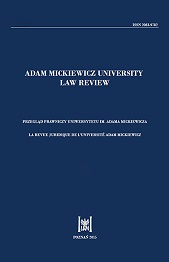
The paper is an English translation of “Lex” a “ius” w okresie przemian by Zygmunt Ziembiński published originally in Polish in “Państwo i prawo” in 1991. The text is published as a part of a jubilee edition of the “Adam Mickiewicz University Law Review. 100th Anniversary of the Faculty of Law and Administration” devoted to the achievements of the late Professors of the Faculty of Law and Administration of the Adam Mickiewicz University, Poznań.
More...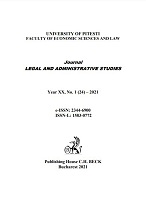
The case law is one of the concepts of the science of law to which the most contradictory opinions are related. Two of the largest systems of law, the RomanGermanic and the Anglo-Saxon ones, traditionally have separate opinions on the recognition of the jurisprudence as source of law. The term of jurisprudence is a creation of the Roman law, though the seed of this phenomenon has emerged in the Ancient East (Assyria, Egypt etc.) on the base of that law, which had a sacral feature. In Rome, the jurisprudence defined the activity of the jurist-consults (especially their practice). In time, the term would have to define both the legal decisions, as well as the theoretical knowledges.
More...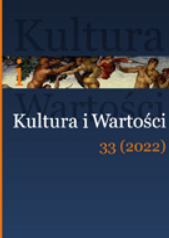
Mury Papieskiego Wydziału Teologicznego we Wrocławiu w dniu 1 marca 2022 gościły po raz siódmy uczestników Filozoficznej Konferencji Naukowej, zatytułowanej w tym roku „Człowiek wobec prawa”. Inicjatywa ta, rozpoczęta przez dra Wojciecha Rojka oraz ówczesnego studenta filozofii Papieskiego Wydziału Teologicznego (PWT) we Wrocławiu ks. Mgra lic. Adama R. Prokopa w roku 2016 („Człowiek wobec techniki”), jest kontynuowana i znajduje szerokie grono zainteresowanych osób, zarówno po stronie zgłaszających się prelegentów, jak również uczestników chcących poszerzać swoje horyzonty myślowe.
More...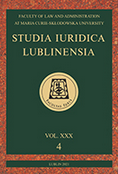
Albert Jay Nock (1870–1945) was a prominent opinion journalist of the first half of the 20th century, considered a representative of the first generation of libertarianism. The article is aimed at finding an answer to the question: Whom – according to Nock – does law serve? A key element of the problem is the internal dichotomy of the concept of law, which not only can be seen through the prism of the positivist-legal paradigm, but also constitutes the pillar of the jusnaturalistic concept. To properly arrange the object of study, the thesis was used according to which in Nock’s doctrine the existence of radically different assessment of the nature of man and his individual goals from the nature of the functioning of the State allows us to demonstrate the dichotomy of two opposing legal orders that serve the welfare of different entities (the individual and the State). To systematize the argument, the concept of the individual and his relations with the State was first presented, and then the dichotomy of the government and the State was discussed, which ultimately finally allowed to analyze the relationship between natural law and positive law.
More...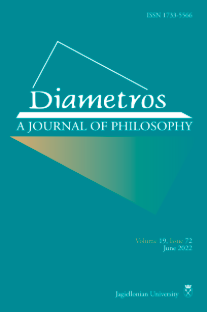
Luck egalitarianism (LE, henceforth) is a fairly prominent theory of justice. While there are many versions of LE, they all agree that, at least to some extent, it is unjust for individuals to lose the opportunity for welfare at least when that loss occurs through no fault of the individual’s own. Many writers take LE to have direct political implications; they write as if the truth of LE entails that resources should be taken from some – perhaps those who enjoy lots of unearned welfare – and delivered to those who suffer through no fault of their own. I argue that luck egalitarians should refocus their thinking on what I call a “Systemic Model” of compensation. This model holds that (a) what matters most to offsetting bad brute luck is that individuals have opportunities to make up for losses of welfare and (b) political systems should be designed to prevent some individuals from capturing resources in a manner that frustrates the ability of others to offset their own losses due to unearned bad luck and (c) political systems should aim to maximize the opportunities individuals have to make up for their own bad luck.
More...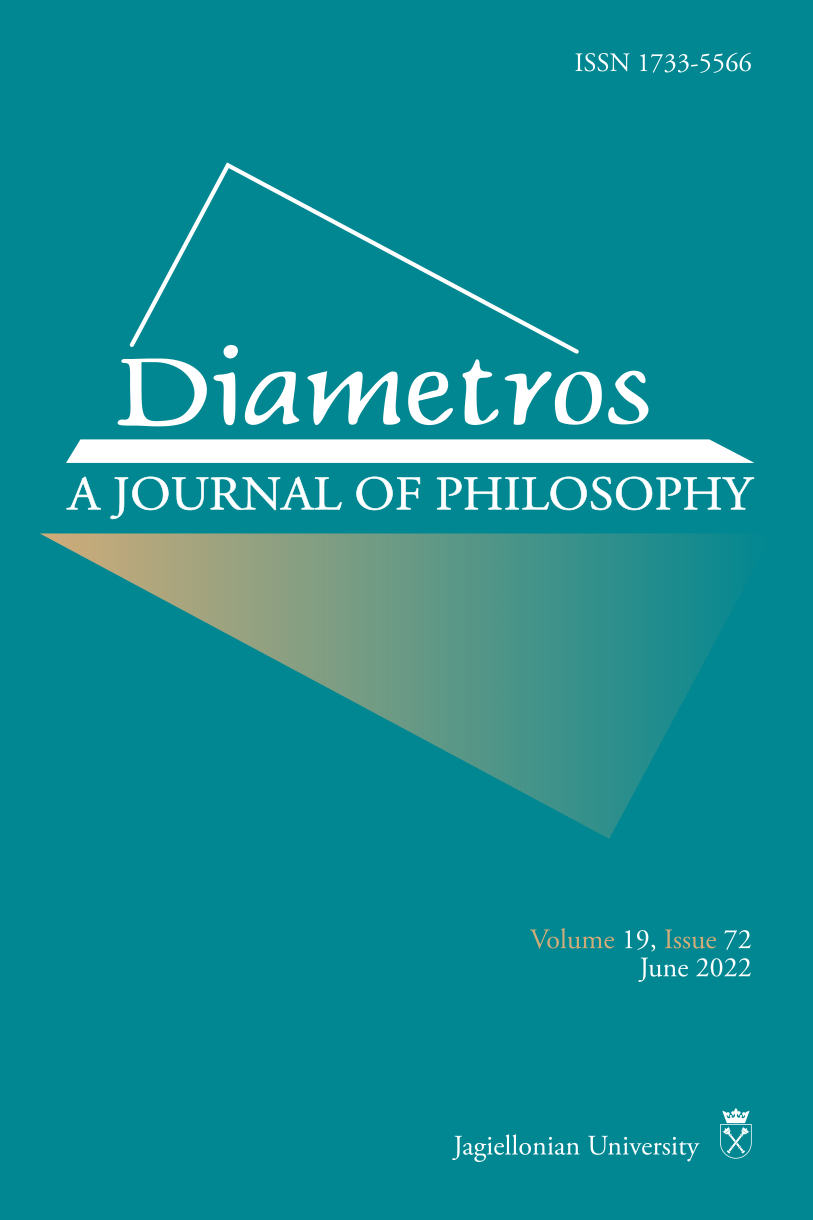
In the present paper we argue that the theory of contracts embraced by many libertarian scholars and relied upon by them in sundry important debates (e.g. over morality of the fractional reserve banking or loan maturity mismatching etc.), that is, the title transfer theory of contracts (TTT) should be rejected as not being able to account for the binding force of future-oriented contracts, including contracts deemed enforceable by those scholars themselves. The TTT claims that the only contracts that should be legally binding are these where the debtor’s failure to abide by them constitutes a violation of the creditor’s private property rights. However, as we argue, no default of the debtor in a future-oriented contract can in itself amount to such a violation.
More...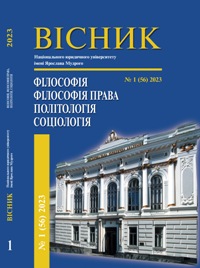
Instead of ideological and class identity in modern society, the identity of agents is formed on such grounds as employment, consumerism, precarity, vaccination, somatic features. Social differentiation along these lines gives no less reason for conflicts. In search of a solution to social contradictions, an appeal is made to the concept of natural rights and the paradigm of performativity, which bring to the fore the physical body in the mode of its presence and natural desire. The multiple non-collective communities into which today's society is disintegrating are spontaneous alliances of single agents. Agents publicly manifest their individual needs and the right to meet them.
More...